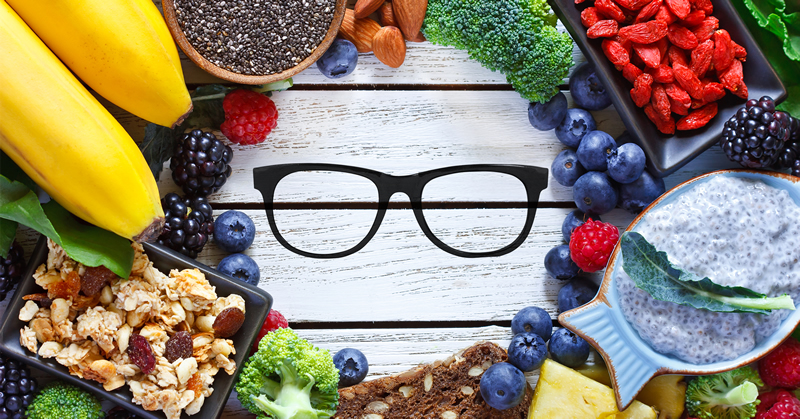One of God’s greatest gifts to mankind is the ability to see the world around us freely. However, not every day of sight and clear vision is observed in today’s world. The major eye conditions include cataracts, uncorrected refractive errors, glaucoma, age-related macular degeneration, corneal opacities, diabetic retinopathy, trachoma and onchocerciasis. Some of the more common types of refractive errors include nearsightedness, farsightedness, astigmatism and presbyopia, causing haziness and glare in vision, ultimately leading to squinting, headache and eye strain.
Visual impairment is a significant health problem in Africa. Approximately 26.3 million people in the African Region have a form of visual impairment. Of these, 20.4 million have low vision and 5.9 million are estimated to be blind. It is estimated that 15.3% of the world’s blind population reside in Africa. With such alarming statistics, it’s important that you take steps to reduce your risk for developing an eye-related disease through smarter lifestyle choices by learning about some of the best foods and nutrients for eye health as well as other practical ways to protect your vision:
Micro-nutrients for eye health
Whether you’re looking for more nutritious eye-boosting foods to add to your diet, or want to add a supplement to your healthy eating regimen, these vitamins are considered to be among the best for reducing your risk of developing eye-related diseases later in life:
Vitamin A is a vital vitamin beta-carotene converts to when it’s digested. This vitamin helps boost the immune system, improve skin and strengthen vision.
Essential fatty acids help strengthen immunity but they also improve retinal function and ensure visual development over time.
Lutein and Zeaxanthin are two essential nutrients for reducing the risk of age-related macular degeneration and cataracts.
Vitamin E is a powerful antioxidant that protects the cells in the eyes from free radicals that can break down tissue and cause cancer.
Vitamin C is also an essential antioxidant that can reduce your risk for developing cataracts, lost visual acuity and age-related macular degeneration.
How to protect your eyes
With millions of people all over the world living with some sort of vision loss, it’s important to make moves that can reduce your risk and help your eyes remain healthy for as long as possible. With a few small adjustments to your lifestyle, you can help protect your vision and ensure the health of your eyes over time.
Wear protective eyewear. No matter how much time you spend outdoors, you should ensure you wear protective sunglasses. Even if the sun isn’t shining, overcast skies still expose you to harmful UV rays that could cause retinal damage and cancerous growths on and around the eye.
Let your eyes rest. If you sit/work in front of a computer all day long, you should follow the 20-20-20 rule, as suggested by the American Academy of Ophthalmology. Every 20 minutes, look up from your work and gaze at an object that’s 20 feet away for at least 20 seconds. This helps to relieve your eyes of their constant exposure to the blue light emanating from the digital screen.
Don’t smoke. This unhealthy habit doesn’t only lead to stroke, lung cancer and heart disease. It also impacts your vision, increasing your risk of developing cataracts, age-related macular degeneration and other conditions that harm the eye’s retina. Drop smoking altogether to improve your overall wellness.
Eat well. You’ve heard that carrots are great for healthy eyes, but an abundance of fresh vegetables, fruits and other plant-based foods are loaded with eye-enhancing vitamins. Stop eating processed junk and replace them with the organic, colorful and natural sustenance the earth has been blessed with and this brings us to our next point.
Best foods for eye health
Your diet has a major impact on your body’s ability to function properly, vision included. With the right blend of whole foods implemented into your diet, you can protect your vision and reduce your risk of developing a harmful eye-related disease or condition. Consider adding the following foods to your everyday eating habits, suggested by Medical News Today:
- Leafy greens
Dark, leafy green vegetables are beneficial to all systems of the body, eyes included. Foods like spinach, kale and broccoli are all rich in lutein, zeaxanthin and vitamin C.
- Nuts
These are rich in omega-3 fatty acids and vitamin E, two essential nutrients that contribute to total eye health. Add more walnuts, almond nuts and cashews to your diet.
- Seeds
Seeds are also great sources of omega-3s and vitamin E and they include chia, flax and hemp which have proven to be optimal for your vision.
- Citrus fruits
Rich in vitamin C, citrus fruits like lemon, orange and grapefruit are essential for eye health.
- Carrots and sweet potatoes
These are packed with vitamin A and E and beta-carotene, which plays a huge role in enhancing your visual health as mentioned earlier.
With these nutrient-dense foods that’s loaded with the vitamins previously listed, you can support your central vision and color perception, combat free radical damage, better adapt to darkness and nighttime, minimize eye strain and fatigue, and maximize stability and absorption.
Don’t let aging and poor lifestyle habits get in the way of seeing the world the way God intended for you.


